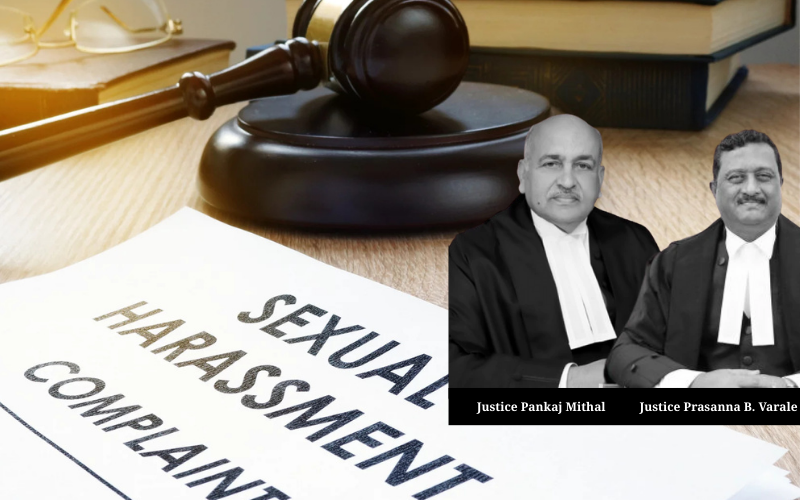Local Complaint Committee rejected the complaint as time-barred, a decision that was later challenged by the appellant in the High Court.
New Delhi, September 12, 2025 – The Supreme Court of India has upheld the dismissal of a sexual harassment complaint filed by Vaneeta Patnaik against Nirmal Kanti Chakrabarti, the Vice Chancellor of the West Bengal National University of Juridical Sciences (NUJS). The judgment, delivered by Justices Pankaj Mithal and Prasanna B. Varale, underscores the importance of adhering to statutory limitation periods in sexual harassment cases under the Sexual Harassment of Women at Workplace (Prevention, Prohibition and Redressal) Act, 2013 (POSH Act).
The case, originating from a complaint lodged by Ms. Patnaik on December 26, 2023, alleged sexual harassment by Mr. Chakrabarti, with the last incident purportedly occurring in April 2023. The Local Complaint Committee (LCC) initially rejected the complaint as time-barred, a decision that was later challenged by the appellant in the High Court.
High Court's Mixed Rulings:
The High Court's single judge initially quashed the LCC's decision, ordering a rehearing based on claims that the appellant faced ongoing intimidation and hostile work environment post-April 2023. However, this ruling was overturned by a Division Bench, which reinstated the LCC's decision, emphasizing the absence of direct links between administrative actions taken after April 2023 and acts of sexual harassment.
Supreme Court's Detailed Analysis:
The Supreme Court's judgment meticulously examined the definitions and scope of sexual harassment under the POSH Act. It affirmed that complaints must be filed within three months of the last incident, extendable by another three months for valid reasons. The court ruled that subsequent administrative actions unrelated to sexual harassment do not extend the limitation period.
Justice Mithal noted that the alleged harassment in April 2023 was a complete act, distinct from administrative actions taken later, which were collective decisions by the Executive Council and not solely by the Vice Chancellor. The court emphasized the distinction between "continuing wrongs" and "recurring wrongs," clarifying that the latter involves a new cause of action each time, which did not apply in this case.
Judicial Ethics and Accountability:
In a remarkable move, the Supreme Court directed that while the alleged acts of harassment cannot be investigated due to technical limitations, they should be noted in the resume of the alleged wrongdoer to ensure accountability. This directive aims to serve as a reminder of the wrong doing, despite the lack of legal recourse.
Implications and Observations:
The judgment has significant implications for how sexual harassment complaints are treated within the framework of the POSH Act. It reiterates the importance of filing complaints within prescribed time limits and establishes the necessity for direct links between administrative actions and alleged harassment.
Legal experts have hailed the decision as a reinforcement of procedural integrity in harassment cases, while also expressing concerns about the challenges faced by victims in navigating complex institutional structures.
This landmark judgment is expected to influence future cases and policies related to workplace harassment, emphasizing both legal adherence and ethical considerations.
Conclusion:
The Supreme Court's decision in Vaneeta Patnaik v. Nirmal Kanti Chakrabarti sets a precedent in handling sexual harassment complaints, balancing legal technicalities with ethical accountability. As institutions and individuals digest the implications of this ruling, it marks a pivotal moment in the ongoing dialogue about workplace harassment and justice.
Vaneeta Patnaik v. Nirmal Kanti Chakrabarti, (SC) : Law Finder Doc id # 2777657




